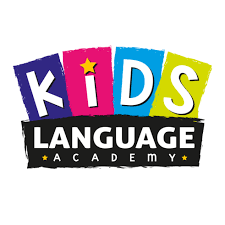How Kids Language Academy in Florida Enhances Your Child’s Cognitive Development Through Language

In the world of early childhood development, cognitive growth is one of the most essential aspects of a child’s overall well-being and future success. As parents, we often look for opportunities to help our children grow intellectually, emotionally, and socially. One of the most impactful ways to support cognitive development is through language learning. At Kids Language Academy in Florida, the power of language is harnessed not only as a tool for communication but also as a gateway to enhancing your child's cognitive abilities.
Language is far more than just a means of exchanging ideas; it plays a critical role in how children think, solve problems, and interact with the world around them. Studies have shown that learning a second language from an early age can positively influence memory, problem-solving skills, attention control, and even creativity. At Kids Language Academy, language learning is designed to stimulate these cognitive skills, setting the foundation for lifelong academic and personal growth.
1. Language Learning and Cognitive Flexibility
Cognitive flexibility refers to the ability to switch between tasks, think about multiple concepts simultaneously, and adapt to new situations. It’s a critical skill that allows children to navigate an ever-changing world, solve problems, and think critically.
When children learn a new language, they are essentially training their brains to become more flexible. The process of switching between languages strengthens the prefrontal cortex, the area of the brain responsible for higher cognitive functions, including decision-making, problem-solving, and self-control.
At Kids Language Academy, language immersion programs are designed to foster cognitive flexibility by encouraging children to switch between their native language and the target language. This constant back-and-forth enhances mental agility, helping children become more adept at solving problems and handling cognitive challenges. As children become comfortable with the complexities of multiple languages, they develop the ability to think critically, adapt quickly, and embrace new ideas with ease.
2. Boosting Memory and Retention Skills
Memory plays a significant role in cognitive development, especially during the early years when children are learning to process and retain new information. Learning a new language can significantly boost working memory—the ability to hold and manipulate information in the short term.
When children engage in language learning, they are required to memorize vocabulary, grammar rules, and sentence structures. This constant exercise of remembering and recalling words and phrases strengthens the hippocampus, the brain region responsible for memory formation. As children expand their vocabulary and understanding of grammar, their brains create stronger neural connections that support long-term memory retention.
At Kids Language Academy, young learners are encouraged to practice language skills through repetition, games, and interactive exercises that are designed to reinforce memory. For example, storytelling sessions, interactive songs, and memory games help children not only learn new words but also improve their ability to recall information quickly and accurately. This development of memory and recall skills is fundamental for success in other academic areas, such as math, science, and reading comprehension.
3. Improving Problem-Solving Abilities
Problem-solving is another critical cognitive skill that is enhanced through language learning. The process of learning a new language forces children to think critically, make decisions, and approach challenges from different angles. For example, when faced with unfamiliar words or sentence structures, children must use their logical reasoning skills to decode meanings and find appropriate solutions.
At Kids Language Academy, children are exposed to language challenges that encourage creative thinking and problem-solving. Through activities such as puzzles, role-playing games, and language-based riddles, children learn how to tackle problems with confidence and creativity. These exercises not only improve their language skills but also encourage them to approach challenges in a methodical, solution-oriented way.
Moreover, language learning often requires children to use context clues, make inferences, and apply logic to understand new concepts. These activities nurture executive function skills, such as planning, organizing, and prioritizing, which are vital for effective problem-solving in both academic and real-world scenarios.
4. Enhancing Attention and Focus
In a world full of distractions, the ability to focus and maintain attention is a skill that is essential for academic success and cognitive development. Research has shown that bilingual children tend to exhibit better attention control and higher levels of focus compared to their monolingual peers.
Learning a second language helps children develop the ability to focus on relevant information and filter out distractions, a process known as selective attention. This is because language learning requires constant monitoring of linguistic cues, adjusting their speech patterns, and remembering rules—all of which require a high level of focus and concentration.
At Kids Language Academy, children engage in a variety of activities that help build their ability to sustain attention over time. Through activities like language-based games, interactive storytelling, and group discussions, children learn to focus on the task at hand, follow complex instructions, and stay engaged in the learning process. These activities not only improve their language skills but also train their brains to pay attention to important details and filter out irrelevant information—skills that are essential for success in school and daily life.
5. Developing Enhanced Creativity and Imagination
Creativity is one of the most valuable cognitive skills in today’s world. It allows children to think outside the box, come up with innovative solutions, and engage in self-expression. Language learning is intrinsically linked to creativity because it encourages children to think in new and imaginative ways.
At Kids Language Academy, creativity is nurtured through activities that require children to use language in novel ways. For example, during storytelling sessions, children are encouraged to invent their own narratives, making use of their growing vocabulary and understanding of language structures. In language-based art projects and role-playing games, children have the opportunity to express themselves freely, using language as a tool to bring their ideas to life.
The process of creating new sentences, inventing characters, and exploring new concepts helps children develop creative thinking skills that extend far beyond language. These skills are transferable to other areas of learning, including math, science, and literature, where creativity and original thinking are increasingly valued.
6. Cultural Awareness and Emotional Intelligence
In addition to cognitive benefits, learning a new language also enhances a child’s cultural awareness and emotional intelligence. Language is deeply intertwined with culture, and when children learn a second language, they are also exposed to new cultural perspectives and ways of thinking.
At Kids Language Academy, language lessons are designed not only to teach vocabulary and grammar but also to immerse students in the cultures where the language is spoken. Through cultural activities, celebrations, and explorations of customs and traditions, children gain a deeper understanding of different cultures, fostering a sense of empathy and appreciation for diversity.
This increased cultural awareness enhances emotional intelligence, as children become more attuned to the emotions, perspectives, and experiences of others. Learning to communicate effectively across cultures allows children to develop stronger interpersonal skills, making them more empathetic, open-minded, and emotionally resilient.
7. Language as a Pathway to Academic Success
Ultimately, the cognitive benefits of language learning are deeply connected to academic success. The skills children develop through language learning—such as memory, focus, problem-solving, and creativity—are all transferable to other academic areas. Research has consistently shown that children who are bilingual or multilingual tend to perform better academically, particularly in reading comprehension, writing, and critical thinking.
At Kids Language Academy, the language programs are designed to build not only linguistic proficiency but also academic readiness. As children develop their cognitive skills through language learning, they become better equipped to tackle complex academic tasks, engage with challenging content, and excel in their studies.
To explore how
Kids Language Academy offers language learning opportunities for all ages and how early language acquisition can benefit your child’s cognitive development, check out our programs, and learn more about
what sets Kids Language Academy apart in nurturing lifelong cognitive growth.
Conclusion: Unlocking Your Child’s Cognitive Potential at Kids Language Academy
At Kids Language Academy, language learning is much more than just acquiring a new set of words. It’s a powerful tool for enhancing your child’s cognitive development in numerous ways. From improving memory and problem-solving skills to enhancing creativity and emotional intelligence, language learning provides a strong foundation for academic and personal success.
By enrolling your child in the immersive, engaging language programs at Kids Language Academy, you’re not only giving them the ability to speak another language—you’re giving them the opportunity to expand their cognitive abilities, develop a love of learning, and prepare for a future full of endless possibilities. Language is a doorway to the world, and at Kids Language Academy, it’s the key to unlocking your child’s full cognitive potential.










